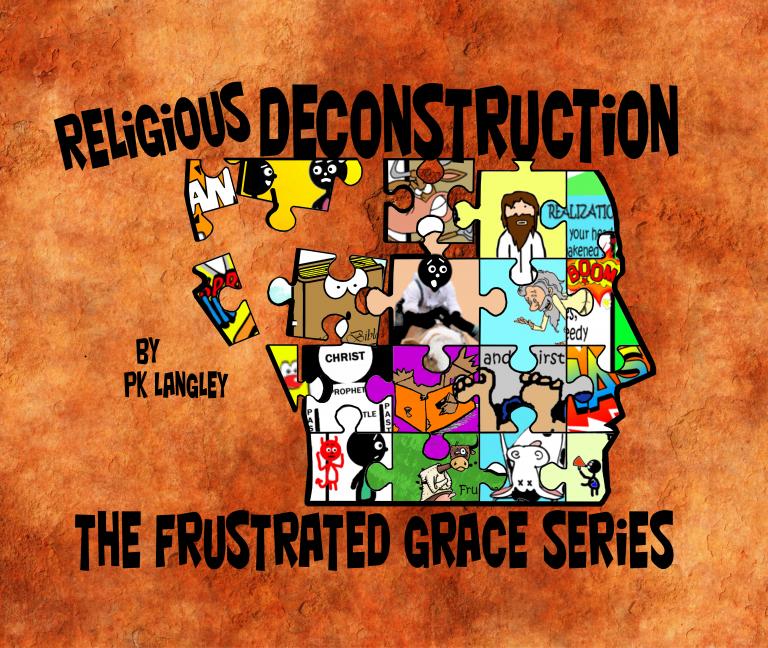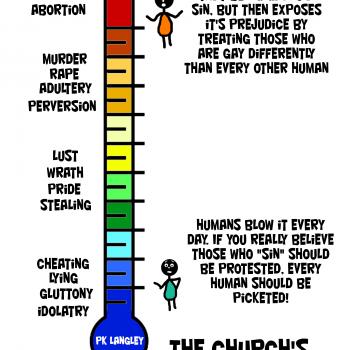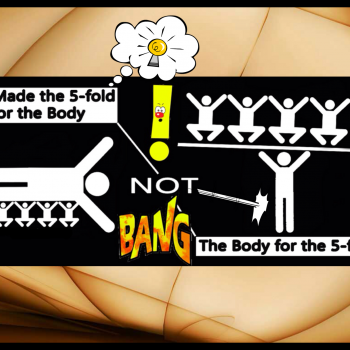 Some background about the Jewish People
Some background about the Jewish People
Before we open Matthew’s letter, it’s important to talk about his people. Any culture has a sense of pride in itself. The Hebrew people had certain characteristics that made them unique to other cultures. They were one of three major cultures that believed in monotheism, or one God.
Judaism is the ancient religion developed by the Hebrews. It comprises theology, law and a lot of traditions. Their tradition records them encountering God through human events and this seemed to make them appear as God’s “chosen” people. God became their body guard, their defender, even their bully if other nations came up against them. The Hebrews believed themselves to be central to all humanity and that God held them in covenant and law. They state that God gave them ten commandments, and then they added hundreds of traditions to that.
It seems they were sticklers for legalism these Hebrews, Israelite’s and Jews. The Sabbath was the day of rest for them. No one could do any labor on the Sabbath. They became so obsessed with making sure that no one worked that they forbade anyone from defecating in a field because they may cause “crevices” in burying their feces that would be like plowing. They disallowed anyone to spit on the ground and wipe it with their feet because that would be plowing. If someone accidentally stepped on spit, they were not punished because they had no intent to plow. It reminds me of why I would never live in an HOA; too many old folks with time on their hands to make up rules.
The Jews believed that their promised Messiah would bring all Jews back to Israel that had wandered off to far away places in the world. They saw it as a crowning glory for all mankind, their Jerusalem, where edicts would flow from to the world from an all powerful king chosen by God. Then, a long era of peace would follow. For the present day Jew, they believe that the ruling body, the Sanhedrin will be reinstated when the Messiah appears. He then will bring forth a male heir and set up his one world order from the seat of Israel.
Jesus did not bring a utopia. He didn’t allow them to make him king and in fact, appears to have rebuked his disciples when they tried. This Jesus didn’t seem interested in getting wed or having children. Jesus said he did not come to bring peace, but a sword so that didn’t sound like an era of peace. Jesus talked about dividing people not uniting them. These all contradict the persona of a Messiah and the Jews summarily rejected Jesus for good reason. He just didn’t measure up to who they were looking for. If you and I had been well versed in the Torah, we would have rejected Jesus as a Messiah too. We would have seen him as the Pharisees and Sadducee’s did then, a trouble maker, a dissident and someone who was dangerous.
Matthew’s first chapter
When we open the book of Matthew in the bible and begin reading, we run headlong into a genealogy. Matthew appears to be pleading a case. He begins by showing that Jesus came from a lineage that was forty-two generations long. At the end of this address of proof, Matthew lists Joseph as Jesus’ father. The next verse switches up the flow and says Mary didn’t get pregnant from Matthew, but by God, or rather, “the Holy Ghost”. This is where the Jewish truck probably ran off the rails. It seems ludicrous Matthew to give us a genealogy for the Messiah but then sever it from that lineage by giving credit for Jesus’s DNA to God. What is Matthew doing?
Jesus may have been in the house with Joseph, but he wasn’t Joseph’s lineage if his mother was impregnated by God. A Jew could disqualify Jesus at once on that premise alone. The Messiah was supposed to be a king and take the throne, then have an heir. Jesus didn’t want to be crowned with an earthly crown. God forbid people visualize Jesus fostering a child.
Questions to ponder:
- Did Matthew believe that Jesus was the Messiah?
- If so, why did he list a lineage that actually discredits Jesus from being “from the stock of Jesse”? The best Jesus can get in Matthew’s example is a step son of Joseph. Joseph was in the proper lineage, but he was not Jesus’ father.
- From a Jewish perspective, the lineage Matthew lists in the beginning of his letter serves to discredit Jesus.
- Was Matthew introducing a new concept, not from the Jewish faith, but a whole new perspective?
The Humanity of Matthew.
Matthew takes a prophecy that applied to a past event with no future implication to support Jesus’ birth by a virgin mother. Yet the two are different events with different circumstances. The situation in Isaiah had nothing to do with a “virgin birth” like that ascribed to Mary but a woman who had not had a child before who would bear a son and this would be witness to God’s deliverance. Matthew appears to like these kinds of loose knit prophecy and does it more than once in his letter.
Was Matthew cherry picking scripture? I don’t think he had any intention of doing so because he was passionate in his faith. There is nothing wrong with seeing a passionate man who is hoping to help people see the truth he believed. Men have been doing this for centuries and will continue to do so.
We close this chapter with Joseph not fathering Jesus. Matthew proclaims that Jesus was born of a virgin. Does Jesus claim this? We must read on to find out.
Important points to consider:
Next time we will move on to chapter 2 and follow Matthew’s letter. Before doing that, let us consider the following:
- Were the disciples any greater than you or I? Did they have a greater measure of the spirit of God even though they were ordinary men?
- If not, then we must judge and discern everything they say as we would ANY individual that shares truth with us today.
- If so, then a never before mentioned, “Super believer” must exist. There is absolutely no evidence to suggest this.
The filter of history can certainly call into question the events that transpired, the actual history itself that began as oral tradition, and even the authorship of Matthew’s gospel. You can question everything that you have not personally witnessed, and you should.
Anything we have not experienced personally we must believe by faith and discern to be true or false. Even the news we hear on a daily basis must be believed by faith.
Life lesson:
My brother pulled me aside once after our sister had recalled a story from our youth. She had told a story as she remembered it with a lot of theatrical detail. He whispered in my ear, “Do you remember it like that? Hell, the way she tells it makes me wonder if I was even there!” He laughed and made a good point in doing so. Our memories are not even a reliable source at times. They are often clouded by perception, emotion and even our own brains ability.
Conclusion and final thoughts:
The story Matthew is telling may not be the truth, the whole truth and nothing but the truth. He is a man, a fallible man with a letter to write. I do not question that he had pure intent and motive in the writing of this letter. It is good to have faith. It is also important to listen for the voice of God in the midst of what is being proclaimed. You can find God in the bible but the bible is NOT God.
This is why the focus of the church shifted over the centuries to the place of deifying the bible.
If one believes the bible to be the “word of God” then one cannot question it. It is no longer a collection of writings compiled by the catholic powers to control people and keep them on the “same page”. It becomes a holy relic, and more than that, a “paper God”.
A deity demands worship and people end up worshiping an inanimate object. They commit idolatry with the object that warns them against it. Imagine God in Heaven getting a good chuckle at the irony of that!
When one says that we cannot question the authority of the bible then what choice do we have left? We begin to struggle over the traditional interpretation of the bible and past perceptions of truth. This constraint became the necessity for spiritual evolution. To be confined to a bible for “everything pertaining to life and Godliness” places pressure on our perceptions of that small document.
As society changes, so must we find an explanation IN the bible for how we who once believed in slavery and supported it with bible verses. Now we must come up with a “new revelation” to bring change. If we look at the bible as a compilation of letters and books that we can find God in but is not God, we are free to look outside of its pages for truth and not be trapped within it.
This is the first chapter of Matthew’s letter. I hope that as we step further, we will do so with a sensitivity to be open to listen. Let us discuss and consider that God challenges us to reason with him. When we do, we do not frustrate the grace of God, we embrace it without fear. PK
Available publications by PK Langley

PK’s Fine Art Store where you can find many of the Frustrated Grace Prints.
KINDLE E-BOOKS
PK writes short stories about life. They are in the form of ebooks for $1.37 each. Get them here.
Religious Deconstruction, The Frustrated Grace Series is now available, with over two hundred comic images on Amazon. You can get a preview of every single one here.

All Things Equal, is an exposition for women and how God
sees them from a very “biblical” point of view. It was what I needed in my first push toward deconstruction. If you are still in a church, and a woman, this is a great book to start. Get it here.
Deconstruction tools
LangleyTown has a specific page for materials that will help you with your deconstruction. Find them here.

PK Langley’s most Popular Blog Posts!
Check out, Paradigm shift to Spirit led living.
Read, “When the Good News Goes Bad” by clicking here.
Social Connections
You can find me on Facebook at “PK Langley”
Thank you for stopping by, I’d love to hear your comments!



 Straight Pride?
Straight Pride?










